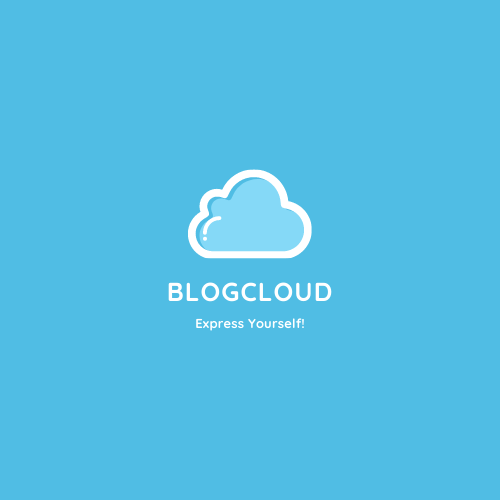BlogCloud vs. Medium: Why BlogCloud is the Superior Choice for Your Next Blog

Author
Gal RatnerIn the vast world of blogging platforms, two names frequently come up: BlogCloud and Medium. While Medium has its merits, BlogCloud offers a plethora of features and advantages that make it the superior choice for serious bloggers and businesses looking to establish a robust online presence. In this comprehensive blog post, we'll delve into the key reasons why BlogCloud outshines Medium, specifically focusing on these crucial points:
- Built-in Ecommerce Functionality
- Superior Design and Templates
- Enterprise CMS Capabilities
- Unmatched Support
- User-Friendly Interface
- Custom Pages and Forms
1. Monetization Made Easy: Built-in Ecommerce Functionality
One of the most compelling reasons to choose BlogCloud over Medium is its seamless integration of ecommerce features. If you're looking to generate revenue directly from your blog, BlogCloud makes it incredibly simple. You can effortlessly set up an online store, sell digital or physical products, and manage transactions without relying on third-party platforms. This streamlined approach not only saves you time but also allows you to maintain complete control over your sales and customer data.
Medium, on the other hand, offers limited monetization options. While you can join the Medium Partner Program and earn money based on reader engagement, you don't have the flexibility to sell products directly to your audience. This can significantly hamper your ability to monetize your blog effectively.
2. Aesthetic Appeal: Superior Design and Templates
First impressions matter, and BlogCloud understands this. The platform boasts a vast collection of professionally designed templates and themes that allow you to create a visually stunning blog that reflects your brand identity. You can easily customize colors, fonts, layouts, and other elements to create a unique and engaging user experience.
While Medium offers a clean and minimalist aesthetic, it lacks the extensive customization options that BlogCloud provides. This can make it challenging to differentiate your blog from the millions of others on the platform. With BlogCloud, you have the freedom to create a blog that stands out from the crowd.
3. Scalability: Enterprise CMS Capabilities
If you're running a business or envision your blog growing significantly in the future, BlogCloud's enterprise content management system (CMS) capabilities are invaluable. The platform offers robust features for managing large volumes of content, collaborating with multiple authors, and controlling user access. You can also integrate BlogCloud with other business tools and systems, such as customer relationship management (CRM) software and marketing automation platforms.
Medium, while suitable for individual bloggers, lacks the advanced CMS features that BlogCloud provides. This can limit its scalability for businesses and organizations with complex content management needs.
4. Peace of Mind: Unmatched Support
When you're building and managing a blog, having reliable support is crucial. BlogCloud offers exceptional customer support, with a dedicated team available to assist you with any technical issues or questions you may have. You can access support through various channels, including email, phone, and live chat. Additionally, BlogCloud provides extensive documentation and resources to help you get the most out of the platform.
Medium's support, while adequate for basic inquiries, can be less responsive and comprehensive than BlogCloud's. This can be frustrating if you encounter complex issues or require personalized assistance.
5. Ease of Use: User-Friendly Interface
BlogCloud's intuitive interface makes it easy for both beginners and experienced bloggers to create and manage content. The platform's drag-and-drop editor allows you to effortlessly add and arrange text, images, videos, and other elements. You can also preview your changes in real-time, ensuring that your blog looks exactly the way you want it to.
While Medium's editor is also user-friendly, it can be somewhat limiting in terms of customization and design options. BlogCloud's interface strikes the perfect balance between simplicity and flexibility, empowering you to create a blog that's both visually appealing and easy to navigate.
6. Tailored Experience: Custom Pages and Forms
BlogCloud's custom pages and forms feature allows you to create unique landing pages, contact forms, surveys, and other interactive elements that enhance your blog's functionality and user experience. You can tailor these pages to specific campaigns, promotions, or audience segments, maximizing engagement and conversions.
Medium, while offering some basic page creation options, lacks the extensive customization capabilities that BlogCloud provides. This can limit your ability to create targeted landing pages and forms that drive specific actions from your audience.
Conclusion: BlogCloud Empowers Your Blogging Success
While Medium has its place in the blogging world, BlogCloud's extensive features, flexibility, and support make it the superior choice for bloggers and businesses seeking a comprehensive platform for building and managing their online presence. From its built-in ecommerce functionality and superior design options to its enterprise CMS capabilities and user-friendly interface, BlogCloud empowers you to create a blog that not only looks great but also drives results.
If you're serious about blogging and want a platform that offers unparalleled control, customization, and monetization potential, BlogCloud is the clear winner. Take the leap and experience the difference for yourself. Your blog's success awaits!